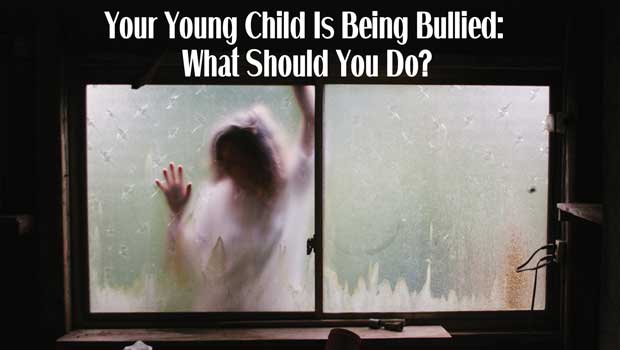If you were asked what the state of your eman (faith) is at this moment regarding the existence of Allah (SWT) and the reality of the hereafter, how would you respond? This is an important question because scholars often remind us that our faith is not static or unchanging. Rather, our eman is in a state of flux— either strengthening or weakening depending on various factors such as acts of worship or their neglect, or the commission of good or bad deeds. Despite the fact that our eman is in constant motion, most of us would surely declare that our eman is strong and that we could never imagine leaving this world except as Muslims. In addition, for most of us it is our knowledge of Islam and glimpses of the wisdom and joy it holds for us, as well as those occasional moments of profound prayerful connection with our Creator, that keeps our commitment to Islam firm and unwavering.
Muslims must continuously endeavor to strengthen their eman, but to keep the Muslim ummah strong, we must also make imparting the beauty of Islam to the next generation tantamount to our most important goals. After all, it is the youth who will carry on the banner of this blessed religion in the homes and Islamic centers of tomorrow. However, there have been serious shortcomings in the guidance and education of our youth, to such a degree that an unfathomable reality has already infiltrated our Muslim communities. Gone are the days when we only had to worry about Muslim youth neglecting their prayer or complaining about fasting. These were phases that tended to be a temporary part of growing up and accepting full accountability before Allah (SWT). The shocking reality is that today there is a small but steady number of Muslim youth who are throwing away all that Islam has to offer and rejecting the very existence of Allah (SWT) altogether. These young ex-Muslim atheists claim complete and utter kufr (disbelief).
If you were asked what the state of your eman (faith) is at this moment regarding the existence of Allah (SWT) and the reality of the hereafter, how would you respond?
As shocking and unthinkable as this reality is, we cannot afford to keep our heads in the sand and pretend that it is not happening or that it could never happen to our youth. The fact is that every young Muslim is our child, the responsibility of the ummah, and we need to be informed of this new disease infecting portions of our Muslim community so that we can provide the solutions to contain this problem before it spreads and places the future of Muslim communities at serious risk. We need to identify some of the causes of our youth being pulled toward atheist ideology and what Muslim families and communities can do to thwart this phenomenon. Some of the findings and solutions presented here arise from my work with youth for twenty-plus years through the organization Muslim Youth of North America and with Islamic schools, Muslim camps, conferences, and halaqas.
Some of the Causes of Muslim Youth Falling into Atheism
Lack of Islamic Education or Parental Role Modeling in the Home:
Parents who don’t prioritize Islamic education and practice in the home are at greatest risk of their children straying off the path of Islam. The first armor against doubt is education and it is not enough to send a child to Sunday school. Parents must teach their children about Islam, but they must also practice what they preach by being good role models. Parents must themselves practice the religious rituals such as salat and fasting and do so with regularity, as well as exemplify the moral code of Islam so as to confirm and reinforce, rather than contradict, whatever the children are learning about the proper way to conduct themselves as Muslims. This allows them to internalize their commitment to Islam. Here is an excerpt from an article written by a Muslim youth from Singapore who became an atheist. It illustrates that lack of practice in the home is a common thread to later incidences of leaving Islam: “I’m a 20-year-old Atheist and former Muslim from Singapore. Like many other Muslims, I was raised while being taught Islamic values and attended Madrasah/Sunday school until I was 16. I didn’t wear hijab or pray daily but I claimed I was proud to be a Muslim.” Obviously if she lived in a home that did not require prayer or other aspects of Islamic practice, then she didn’t truly have an Islamic education or a good example set by her parents.
Associating With a Bad Crowd of Friends:
Parents must have full knowledge of who their children associate with on a daily basis. This is essential because one never knows what negative influences these friends might bring. During an interview on the Deen Show, Ustadh Nouman Ali Khan of the Bayinnah Institute, spoke of his own internal religious struggle which led to him leaving Islam and turning to atheism as a youth. He relays that it began with him befriending non-believing peers in high school which in turn eventually led to a loss of religion and him adopting the atheist ideology. Falling into that crowd and not being around any Muslims, he reached the point that, as he says, “I had a hatred for the concept of God. It was by the Mercy of Allah that Allah opened many doors that led me back to Iman and to my Faith, and conviction.” The Prophet (pbuh) said, “A good friend and a bad friend are like the perfume seller and a blacksmith: The perfume-seller might give you some perfume as a gift, or you will get a good smell from him; as for the blacksmith, he might singe your clothes or you will get a bad smell from him” (Bukhari).
Negative Influence of Social Media:
Oftentimes it is through social media that atheist ideologies are promoted. Parents need to monitor their children’s time on the internet. It is very easy for youth to happen upon, or even search for, information that can lead them into doubt about religion. In an article entitled “Pakistani Youths Turning Into Atheists” on IBN live, the writer notes, “A Facebook group has been floating for Pakistan’s atheists by Hazrat NaKhuda, a former Pakistani Muslim. At last count, the group had over a 100 members.” A thread was started on the discussion board entitled “How did you become an atheist.” Members of the group are from all over including the United States.
Emotional or Psychological Troubles:
Underlying emotional issues that a young Muslim is facing might cause him to doubt and lead to atheism. Ustadh Nouman Ali Khan states that atheism is rooted in emotional trauma: “Atheism is a conscious decision. It does not occur naturally… It is not rooted in something intellectual—that’s the facade. It’s actually rooted in something psychological. These people are either traumatized or they had a really bad experience in life, or they’ve seen something that they were emotionally disturbed by—they decided to blame God for it, and as part of their reaction against God—you know, what is the biggest offense I can do—[to say] He doesn’t even exist.”
Interweaving Culture with Islam:
Muslims commonly confuse cultural tradition with Islamic practice. In his recent article about the rise of atheism, Mohamed Ghilan, a Ph.D. candidate in neuroscience at the University of Victoria in Canada and a student of Islamic jurisprudence, makes the point that this is a major cause of the rise of atheism: “In fact, the problem is not with Islam; it’s with modern day Muslims. It’s where some Muslims coming to the West from the East have decided that cultural customs are actually absolute parts of Islam. Having their children grow in the West and raising them to be cultural schizophrenics who unjustifiably feel guilty about their adopted culture is now showing its ugly face. We now have a growing movement of young educated Muslims who all of a sudden discovered that what they took for granted as absolutes turned out to be nothing more than relative cultural manifestations of Islam… After realizing they’ve been duped the whole time as a result of their own and their parent’s ignorance of Islam, the whole religion became an open question. …Interestingly, the places where cultural baggage is being exported as an absolute part of Islam happen to also be the places with the most vocal and strongest growing atheist ex-Muslim movements.”
Protecting Youth from Atheism: Some Solutions
After Allah (SWT), the two greatest protections against Muslim youth falling off the path of Islam are parents and local Muslim communities. There are a number of things parents can do to protect their children.
Have Children Attend Full-time Islamic School and Islamic Sunday School:
One of the first steps in building a sense of Islamic identity is to surround youth with Muslims and Islamic teaching. By attending Islamic school, children will make salat, read the Qur’an, and practice their religion daily in a supportive environment.
Establish Salat in the Home as a Family Practice:
Children and youth must be required to make their prayer (salat) daily. A wise person once said: “If one does not pray, they become easy prey for Shayton (the devil).” In the home, adopt a “no playing before praying” rule, meaning that children must do their daily prayers so as not to lose the privilege of playing; this includes video games, watching TV, and time spent online. Furthermore, if the prayer time comes in while they are engaged in any other activity, they must be required to leave that activity to perform the prayer and if time permits, to then return to that activity.
Require Children to Read the Qur’an Daily:
Establish for your children the habit of reading Qur’an every day for ten minutes to an hour. Teach them to read the Qur’an in Arabic, and to learn its meaning as well. Reading Qur’an not only provides blessings, but also increases eman and inspires a stronger commitment to Allah (SWT) within the heart.
Attend Islamic Conferences and Events as a Family:
Attending annual Islamic conventions and conferences like ICNA, ISNA, and other smaller events helps strengthen the youths’ Islamic identities and give them a sense of fellowship and solidarity with other Muslims. Oftentimes Muslims feel their status as a minority, but while attending Islamic conferences, Muslim youth can feel like part of a majority, surrounded with like-minded individuals, like they would in a Muslim country.
Send Children to Muslim Youth Camps and Conferences:
Quality Muslim youth camps can be cornerstones in helping youth develop Islamic identity. What sets Muslim youth camps and conferences apart from the Islamic studies class, is that youth are not “talked at,” but rather encouraged to “talk to” each other. When youth talk together in workshops and open forums about common challenges and problems, they internalize the information more and gain confidence by realizing they are not alone. One quality youth conference can change a Muslim youth’s life for the better.
Have Your Older Children Attend a Regular Muslim Youth Halaqa:
Our older children must come together with other youth on a regular basis and discuss Islam and take turns researching and teaching one another various Islamic topics. By the youth themselves relaying hadeeth and Qur’anic verses, the information is retained and internalized more effectively. If there is currently not an available halaqa, then parents can start one in their local masjid, and invite other youth to attend. The Prophet (pbuh) said: “Whoever seeks a way to acquire knowledge, Allah will make easy his way to Paradise” (Muslim).
More Solutions at the Community Level
There are also a number of things local communities can do to protect our children.
Provide Regular Quality Youth Conferences, Camps, Halaqas, and Sports Programs:
Youth certainly need to be involved in youth workshops and conferences where they speak to, teach, and debate one another about Islam and its practical application in life, as well as engage in discussion about Islamic work and other Islamic topics. They also need recreation programs which can provide enjoyment and provide opportunity for them to develop lasting friendships with fellow Muslim youth.
Develop Leadership Training Programs:
In order for youth to fully internalize their faith in action, they must take ownership of their Islamic work. This means giving the youth responsibilities and positions within Islamic centers which help them to feel responsible and that they are a dynamic part of the community. This encourages youth to engage in community service and think long term about how to carry on the vital work needed in our communities.
Invite Motivational Muslim Speakers Specifically for Youth:
Many Muslim speakers have great experience talking to the youth and they can be the role models needed to inspire youth to strengthen their eman and Islamic identity.
Hold Youth Forums Highlighting the Many Muslim Contributions to World Civilization:
Special workshops can be held to spotlight the many contributions made by Muslims in the way of science, technology, mathematics and inventions. Muslim youth are inundated with negative stereotypes about Muslims in the media. One way to counterbalance that negativity is to highlight for the youth the part that Islam and Muslims have played in advancing knowledge in zoology, astronomy, geography, navigation, architecture, medicine, and mathematics, as well as in founding great libraries, making advancements in bookmaking, designing decorative geometric art, calligraphy, and fine textiles, and so on. Realizing this extensive and important heritage can give youth confidence and inspiration to continue the tradition of future contributions to civilization.
Final Thoughts
If a Muslim youth is going astray, take a gentle approach. It is important to befriend them with an uncritical and non-judgmental manner. This is the best way to deal with these youth who are already feeling somewhat alienated. Ustadth Nouman Ali Khan attributes this approach to helping him leave the atheist lifestyle and re-commit to Islam: “One of the most important messages that benefited me that I hope other Muslims can benefit from is, number one, there is nobody that is hopeless. I was one of those guys (people would have called hopeless), but then someone decided not to judge me and to just think of me as a human being who has some goodness in them. And we have to do that for other people. We have to have some patience with them in giving them Islam, and it’s not going to happen overnight. This brother that helped me never actually gave me dawah to Islam: he never told me to pray, he never told me about the Qur’an. But just through his company and his kindness and generosity, little by little, and it was a good year-long process that —Subhan’Allah I came toward the Deen.”
Share with youth why you love Islam. We must find the words to communicate the beautiful legacy of Islam to our Muslim youth—words which help to inspire them to internalize the beauty of its message. We cannot assume that youth have already heard the message. We must relay the message to them, and give them reasons to feel awe for their religion and thankfulness for being Muslim. Explain to them how Islam took Muslims out of the darkness and into the light of knowledge. Relay to them how we should be thankful that it answers life’s biggest question directly – why we are here on earth: “And I did not create the jinn and mankind except to worship Me”(Qur’an 51:56). Convey to the youth how thankful you are that with this religion came our beloved Prophet Muhammad (pbuh) who was a beacon among men and a mercy to humankind, promoting peace, justice, kindness, morality, and honor and rights to women. And through Prophet Muhammad came the Glorious Qur’an, the final message to mankind, which is both a blessing and a miracle in so many ways including its incorruptible, healing, and awe-inspiring text which is memorized word for word by millions. This is just a small part of the beauty and uplifting legacy of Islam which must be properly imparted to the youth of today and tomorrow.
Our Muslim youth are the next generation of Islamic workers and community leaders, and it is the responsibility of both parents and the local communities to work together, striving to instill in our children’s hearts and minds a deep-seated love for Islam and strong Islamic identity. We must be certain that they are hearing and understanding the message of Islam. Only then can they internalize its beauty and truth and develop a realization that our Lord is ever near. May they be of those who reach out to Him for mercy and guidance and find their place among those of whom it is said, “They were the youth who believed in their lord and we increased them in Guidance” (Qur’an 18: 13).






